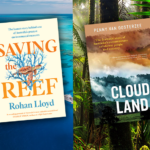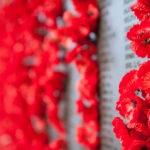
Black Glass
Meg Mundell, Scribe
Black Glass has been compared favourably with Catherine O’Flynn’s prize-winning novel What Was Lost — to which it bears some similarities. For example, both books explore the alienation that can occur in suburbs and cities.
Mundell’s debut novel, however, has a stronger futuristic and sinister brave-new-world feel to it. This could well account for my weaker response.
I found the setting — although not too far removed from where Australian urban life is at now — somehow distanced me from the more peripheral characters and their predicaments.
Tally and Grace are sisters. Their drug-dealing father carts them around the countryside and finally gets himself into one too many scrapes.
The girls are separated and end up in a sharp-edged city with no friends, family, money or home.
As undocumented people (“undocs”) they are forced to use their wits to survive and to try to find one another in a city dominated by surveillance and security guards.
Riff raff, like they have become, get forced into hiding and to the city’s edges where they need to be constantly vigilant about the manipulative people and systems that surround them.
Tally and Grace are well-drawn characters — delightfully fresh and feisty.
I wouldn’t be surprised if Black Glass became a contender for the Barbara Jefferis Award. This Australian literary prize is awarded to “the best novel written by an Australian author that depicts women and girls in a positive way or otherwise empowers the status of women and girls in society”.
Black Glass is definitely worth a look if you like speculative fiction and interesting, youthful, female protagonists.
Marjorie Lewis-Jones




























































